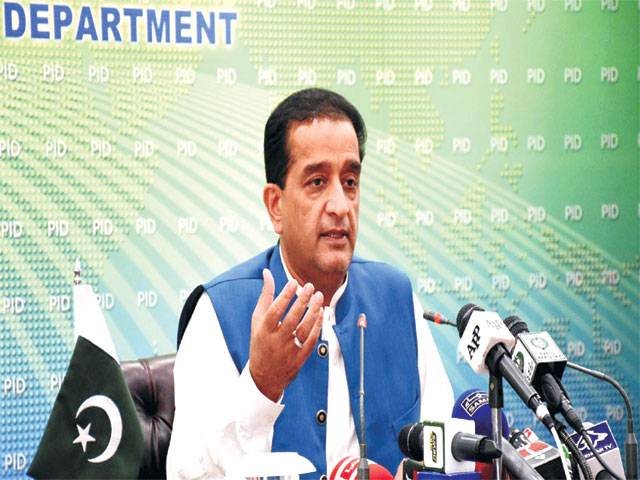ISLAMABAD - Special Assistant to the Prime Minister (SAPM) on Climate Change, Malik Amin Aslam said on Monday lives and livelihoods in the Asia region are acutely exposed to the exacerbating risk of flooding caused due to climate change.
However, concerted and joint action is urgently needed to address this common challenge of flood risk, he stressed while addressing the participants at an international event ‘Accelerating Adaptation in Asia through large-scale Nature-based Solutions’.
Statement issued said that the Asian Development Bank in its latest studies has ranked Pakistan, Bhutan, Indonesia, Papua New Guinea, Sri Lanka, Thailand, Timor-Leste, Uzbekistan and Vietnam the most vulnerable countries in Asian region.
“There’s a consistency in the global climate models, showing that the climate breakdown is all set to translate into more floods because of more intense rainy seasons in the vulnerable Asia in coming years,” emphasised Malik Amin, adding, “As a result, millions are most likely to see their homes, all their belongings and livelihoods destroyed when floods sweep, chiefly during summer wet seasons.”
Amin Aslam urges world community to increase global climate finances
up to 60pc
The PM’s aide expressed his worry over inadequate allocations of mere 25 percent of the total global climate finance for adaptation needs of the climate-vulnerable developing countries including Pakistan.
He, thus, urged rich countries, blamed for the global climate crisis, to increase global climate finances up to 60 percent for adaptation needs of the poor countries, that is critical for them to be able to adjust to the fallouts of the global climate crisis.
“More visibly, now nature is brutally revenging upon the lives and livelihoods of us all through unstoppable colossal floods, suffocating heat waves, surging wildfires, devouring sea intrusions and vanishing groundwater,” he highlighted.
Referring to Covid-19 pandemic, a massive human disaster that proved the worst in recent human history, Malik Amin Aslam said that the disease’s outbreak is nature’s seething revenge upon humans for encroaching upon the habitats of wild animals.
He suggested that adopting nature-based solutions (NBS)in all climate-vulnerable and climate-affected socio-economic sectors are key for protection of lives and livelihoods of the humans from climate change-induced floods and other risks, stemming natural habitats, improving groundwater recharge, decreasing risks of heat waves, wildfires, cyclones, storms and sea-level rises.
They are underpinned by benefits that flow from healthy ecosystems and target major challenges like climate change, disaster risk reduction, food and water security, health and are critical to economic development, he added.
“For this to achieve, it is of unprecedented importance that global community, particularly rich nations play active role to limit global temperature rise by slashing climate-altering emissions and invest in nature-based solutions to protect, manage and restore ecosystems and land for the existing and future generations and natural ecosystems as a part of efforts for nature’s healing,” Malik Amin remarked.






